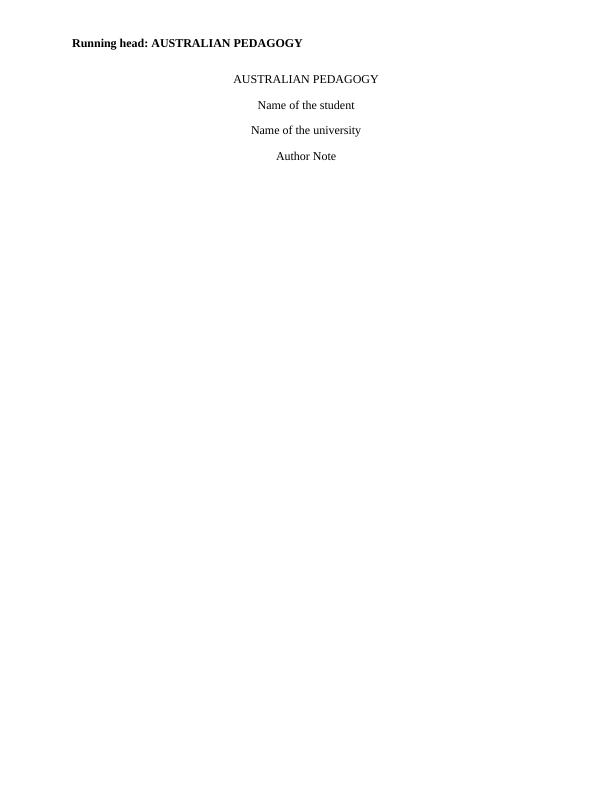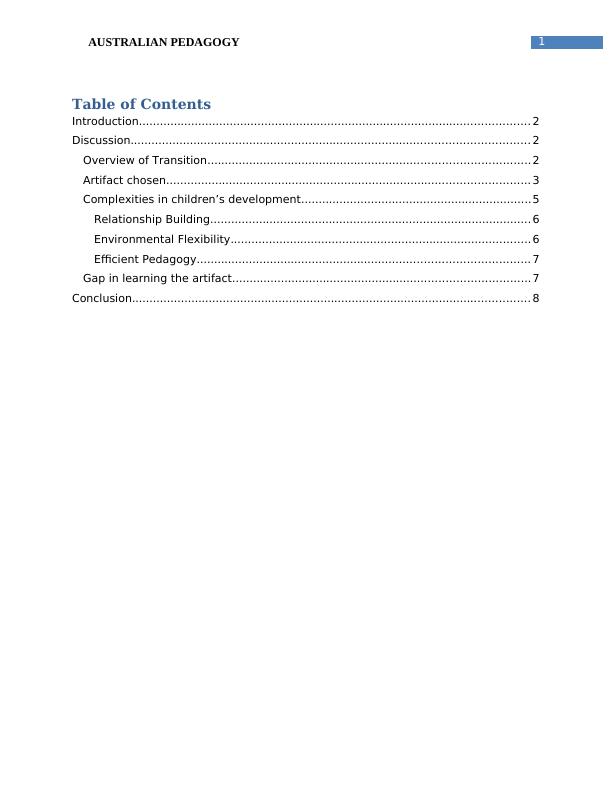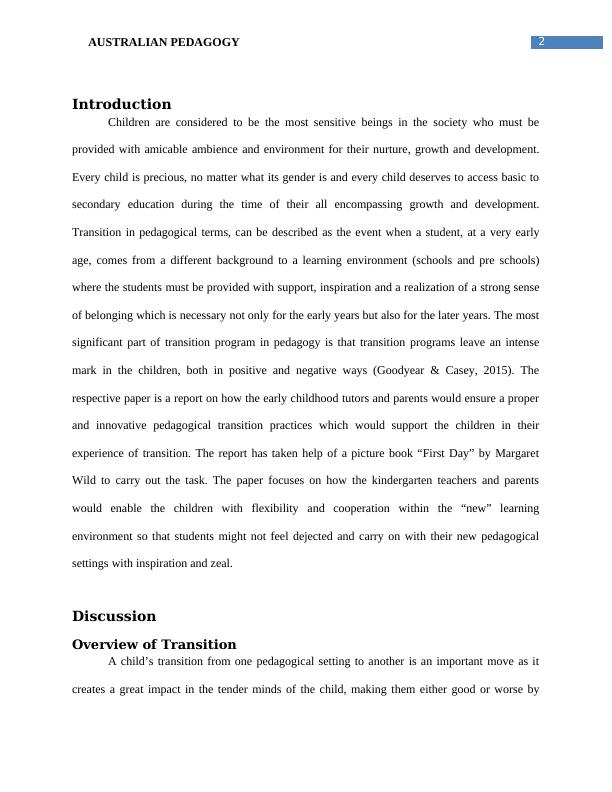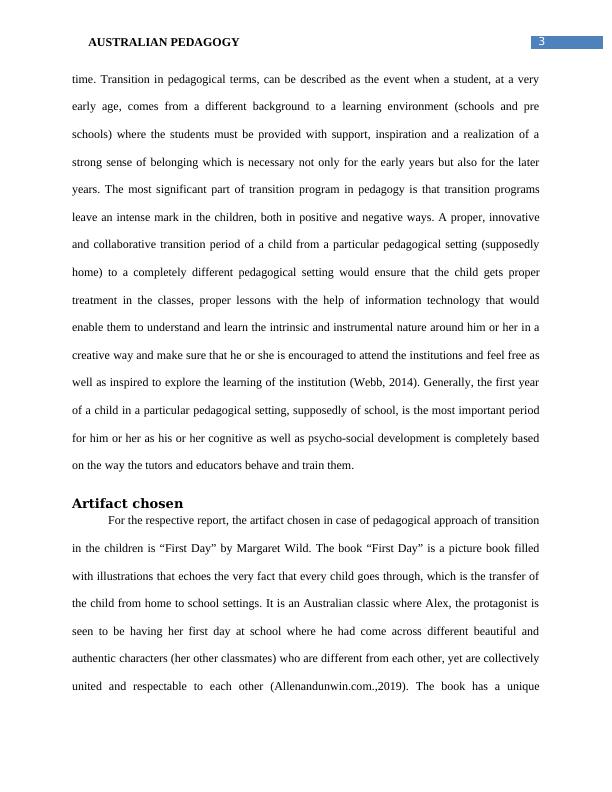Australian Pedagogy: Transition Practices for Children
This assignment focuses on the transition of children from home to group care and the role of teachers in helping them adjust to new environments.
11 Pages2783 Words499 Views
Added on 2022-11-07
About This Document
This report discusses innovative pedagogical transition practices for children in Australia. It focuses on the artifact chosen, complexities in children's development, relationship building, environmental flexibility, and efficient pedagogy. The report concludes by discussing how kindergarten teachers and parents can enable children with flexibility and cooperation within the new school environment.
Australian Pedagogy: Transition Practices for Children
This assignment focuses on the transition of children from home to group care and the role of teachers in helping them adjust to new environments.
Added on 2022-11-07
ShareRelated Documents
End of preview
Want to access all the pages? Upload your documents or become a member.
Australian Child Care: EYLF and National Quality Framework
|6
|1516
|337
Early Childhood Education Essay 2022
|9
|2663
|20
Pedagogical Leadership Reading Analysis
|5
|994
|268
The Sociology of Early Childhood -
|10
|2526
|13
Pedagogy, Assessment and Contesting Curriculum
|9
|2459
|407
Early Childhood Philosophy
|7
|1216
|319




